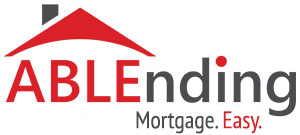Compare Fixed Rate Mortgages And Find Out About 50 Year Mortgages
If you plan on staying in your home for 10 or more years and want your mortgage payments to stay at one stable rate, you should consider a fixed rate mortgage. Available for 10, 15, and 30 years, fixed rate mortgages give you the comfort of knowing your monthly payments will never increase. This is especially advantageous when interest rates are low – you’ll lock in the current rate for the duration of your loan, whether it’s 10, 15, or 30 years, so you’re safeguarded from rising interest rates in the future.
When choosing between the different types of fixed rate mortgages, there are a few things to consider. A longer term mortgage (such as the 30 year fixed rate mortgage) has lower monthly payments than 10 and 15 year mortgages. On the flip side, it also has higher interest rates. And, since you’re locked into your interest rates for the entirety of the loan, there may be times when interest rates go down but you’re stuck paying higher interest rates.
Of course, with a 10 or 15 year mortgage, you may also risk paying higher rates than the current interest rates – but since they are shorter term, there’s less opportunity for this to happen. And shorter term fixed rate mortgages benefit from lower interest rates than 30 year fixed mortgages. In addition, you will build up equity on your home in a shorter amount of time, because you are paying more off the principal with each monthly payment. However, in order to do this, your monthly payment is higher than the payments on longer term mortgages.
Find out about 50 year mortgages
With housing prices in some parts of the country hitting record highs, many people’s dream of owning a home seems too far out of reach. Add to that the threat of rising interest rates, and that dream can become a nightmare for some. That’s why several of the country’s mortgage lenders have introduced longer term loans like 40 year and 50 year mortgages to meet the needs of more prospective home buyers.
These newer mortgage options open up the housing market to a larger group of buyers by spreading the loan into lower monthly payments over a longer period of time. It’s easy to see why the monthly installments are lower: Imagine dividing payments on a $400,000 home into 360 monthly payments for a 30 year mortgage or 600 payments for a 50 year mortgage. The 50 year mortgage installments would be significantly lower.
Although total interest paid on the lifetime of a longer-term loan will be greater than the interest paid on a 15 or 30 year mortgage, you’ll still benefit from building up home equity because you are making payments on both the principal amount of the loan and interest. This makes 40 year and 50 year mortgages attractive alternatives to old standbys like interest-only and payment-option adjustable-rate mortgages, which can be more costly in the long term because little to no principal is paid off.

Leave A Comment